The Motor Vehicle Act. The Vehicle Code. The Traffic Safety Act. No matter where you live, odds are there’s a set of laws governing how drivers and other road users are expected to behave. Regional oddities aside, most of these bodies of law are similar, with rules that require adherence to speed limits, traffic signs and signals, and so on.
It’s a sad commentary on society that even though we have these enormous bodies of law devoted to telling people what not to do when behind the wheel, every year tens of thousands of people die on our roads, and many more are injured. Clearly, the laws in place and the penalties for breaking them aren’t enough of a deterrent.
Let’s face it… driving is hard. I mean, all you’re trying to do is get somewhere, but so many things get in your way. There’s all those other drivers—things would be a lot easier for you if everyone else could just get out of your way. Then there’s all those laws, telling what you can’t (but want to) do.
I think a lot about the way people drive, and have written a few blogs about the subject. I even wrote a book that explores the conflict between drivers and cyclists. Recently, when a teenage friend-of-the-family got their Learner’s License and began taking driving lessons, I started thinking about whether one could distill desired driving behaviour into a few simple directives or axioms. I came up with these five simple rules, what I call the Driving Commandments:
It’s a sad commentary on society that even though we have these enormous bodies of law devoted to telling people what not to do when behind the wheel, every year tens of thousands of people die on our roads, and many more are injured. Clearly, the laws in place and the penalties for breaking them aren’t enough of a deterrent.
Let’s face it… driving is hard. I mean, all you’re trying to do is get somewhere, but so many things get in your way. There’s all those other drivers—things would be a lot easier for you if everyone else could just get out of your way. Then there’s all those laws, telling what you can’t (but want to) do.
I think a lot about the way people drive, and have written a few blogs about the subject. I even wrote a book that explores the conflict between drivers and cyclists. Recently, when a teenage friend-of-the-family got their Learner’s License and began taking driving lessons, I started thinking about whether one could distill desired driving behaviour into a few simple directives or axioms. I came up with these five simple rules, what I call the Driving Commandments:
- Don’t hit anyone.
- Don’t hit anything.
- Don’t be a bully.
- Don’t be a jerk.
- Mind your own business.
Let's drill down into each of these...
Don’t Hit Anyone
When you’re behind the wheel, you’re inside a metal cage that has been engineered to a multitude of standards, resulting in safety features designed to protect you and your passengers. But, if the vehicle you’re in control of comes in contact with someone more vulnerable, say a pedestrian, cyclist, or motorcyclist, those standards and features will be of little help (to them). There’s a reason cars are sometimes referred to as “killing machines”—if you hit a vulnerable road user, you’re probably going to kill them. Or at the very least, seriously injure them.
So, that’s the First Commandment: don’t hit anyone. Not on purpose, not by mistake. Let’s take that a step further: you should go out of your way (literally) to avoid hitting anyone. I made this the first rule because I think peoples’ lives are more important than, well, all other concerns. If you don’t agree with that premise, I strongly suggest you stop driving. Immediately.
When you’re behind the wheel, you’re inside a metal cage that has been engineered to a multitude of standards, resulting in safety features designed to protect you and your passengers. But, if the vehicle you’re in control of comes in contact with someone more vulnerable, say a pedestrian, cyclist, or motorcyclist, those standards and features will be of little help (to them). There’s a reason cars are sometimes referred to as “killing machines”—if you hit a vulnerable road user, you’re probably going to kill them. Or at the very least, seriously injure them.
So, that’s the First Commandment: don’t hit anyone. Not on purpose, not by mistake. Let’s take that a step further: you should go out of your way (literally) to avoid hitting anyone. I made this the first rule because I think peoples’ lives are more important than, well, all other concerns. If you don’t agree with that premise, I strongly suggest you stop driving. Immediately.
| Don’t Hit Anything Okay, so you’ve managed to follow the First Commandment and not hit anyone. Congrats! Your next highest priority should be to avoid hitting anything else with your vehicle. Telephone poles, street signs, other vehicles (moving or not), buildings, and so on. If you break the Second Commandment you probably won’t kill anyone (unless you put in some genuine effort), but you will put a financial burden on yourself or others. And if you do hit another vehicle, the odds are much lower its occupants will be injured. I put this in second place for a reason. If you find yourself in a situation where you suddenly have to choose between hitting someone and hitting something, choose the latter. If you’re confronted with the choice between steering into a building or telephone pole to avoid hitting a pedestrian, you absolutely should do it. |
Don’t be a Bully
Driving offers people a certain amount of power they wouldn’t otherwise have. People do things behind the wheel they’d never consider doing if they were walking down a busy sidewalk. Cars and trucks are, to some extent, the Great Equalizer. And then some. A small woman driving a semi-trailer rig is more powerful than the burly man driving a sub-compact in the adjacent lane. Someone driving a motor vehicle can literally make life-or-death decisions about those around them, especially those more vulnerable, like cyclists or pedestrians.
The Merriam-Webster dictionary defines a bully as “someone who is … threatening others who are weaker, smaller, or in some other way vulnerable.” That is exactly what many drivers do — they purposely misbehave because they have the size and/or weight advantage.
You can see examples of drivers acting like bullies every day. Someone in a pickup truck tailgating a Prius. A driver overtaking a cyclist way too close, then cutting back in too soon (the “punish pass”). Driving too close to a pedestrian who’s crossing the road outside of a crosswalk.
Why do some people turn into bullies when they get behind the wheel? My theory is that those people have (or at least feel like they have) little control over most of the things in their lives; driving is one of the few activities where they are in control. And they want others to know it.
My parents taught me to stand up to bullies. When I’m out cycling and a driver purposely threatens my safety through their action or inaction, I’ll try to get their attention and engage in a discussion. Almost every time, that discussion devolves quickly, then me saying, “You’re pretty tough when you’re in your car. Let’s see how tough you are when you step outside?” Every single time I’ve done that, the driver yells profanities and gesticulates wildly. But they never, ever, get out of their car. Bully.
It’s really hard to be a bully when you’re driving a Prius. Not impossible, but it will take some effort as your pool of potential victims is pretty small.
So the next time you decide to honk your horn at a cyclist, or tailgate someone in a smaller vehicle, ask yourself, “Am I being a bully?”
Driving offers people a certain amount of power they wouldn’t otherwise have. People do things behind the wheel they’d never consider doing if they were walking down a busy sidewalk. Cars and trucks are, to some extent, the Great Equalizer. And then some. A small woman driving a semi-trailer rig is more powerful than the burly man driving a sub-compact in the adjacent lane. Someone driving a motor vehicle can literally make life-or-death decisions about those around them, especially those more vulnerable, like cyclists or pedestrians.
The Merriam-Webster dictionary defines a bully as “someone who is … threatening others who are weaker, smaller, or in some other way vulnerable.” That is exactly what many drivers do — they purposely misbehave because they have the size and/or weight advantage.
You can see examples of drivers acting like bullies every day. Someone in a pickup truck tailgating a Prius. A driver overtaking a cyclist way too close, then cutting back in too soon (the “punish pass”). Driving too close to a pedestrian who’s crossing the road outside of a crosswalk.
Why do some people turn into bullies when they get behind the wheel? My theory is that those people have (or at least feel like they have) little control over most of the things in their lives; driving is one of the few activities where they are in control. And they want others to know it.
My parents taught me to stand up to bullies. When I’m out cycling and a driver purposely threatens my safety through their action or inaction, I’ll try to get their attention and engage in a discussion. Almost every time, that discussion devolves quickly, then me saying, “You’re pretty tough when you’re in your car. Let’s see how tough you are when you step outside?” Every single time I’ve done that, the driver yells profanities and gesticulates wildly. But they never, ever, get out of their car. Bully.
It’s really hard to be a bully when you’re driving a Prius. Not impossible, but it will take some effort as your pool of potential victims is pretty small.
So the next time you decide to honk your horn at a cyclist, or tailgate someone in a smaller vehicle, ask yourself, “Am I being a bully?”
Don’t be a Jerk
Trying to be a bully when you don’t have a size or weight advantage is a rather futile exercise. But that doesn’t mean you can’t make life difficult for others using the roads. In fact, many drivers purposely seek out conflict by trying to annoy or inconvenience others.
Speeding up going into a roundabout to prevent the driver at the next entrance from getting in front of you. Not letting someone merge into your lane when theirs ends. Speeding up when a driver in another lane signals they’re going to move into your lane. Driving around with a loud muffler or stereo—why the fuck do you have a hobby that consists primarily of annoying others? What does that say about you as a person? You know, I have a hobby (several in fact), but you probably don’t know what they are because they're fucking quiet hobbies.
Not sure if you’re being a jerk? Do you often find other drivers or cyclists flipping you the bird? Then you’re a jerk. Do you see pedestrians waving at you and throwing up their arms in the universal “What the fuck, dude!”? You’re a jerk. Ever catch yourself looking in your rearview mirror and thinking, “Huh, I sure showed him!”? Yup—jerk.
You know it’s entirely possible to go about your driving business without annoying others? Why not give it a try?
Trying to be a bully when you don’t have a size or weight advantage is a rather futile exercise. But that doesn’t mean you can’t make life difficult for others using the roads. In fact, many drivers purposely seek out conflict by trying to annoy or inconvenience others.
Speeding up going into a roundabout to prevent the driver at the next entrance from getting in front of you. Not letting someone merge into your lane when theirs ends. Speeding up when a driver in another lane signals they’re going to move into your lane. Driving around with a loud muffler or stereo—why the fuck do you have a hobby that consists primarily of annoying others? What does that say about you as a person? You know, I have a hobby (several in fact), but you probably don’t know what they are because they're fucking quiet hobbies.
Not sure if you’re being a jerk? Do you often find other drivers or cyclists flipping you the bird? Then you’re a jerk. Do you see pedestrians waving at you and throwing up their arms in the universal “What the fuck, dude!”? You’re a jerk. Ever catch yourself looking in your rearview mirror and thinking, “Huh, I sure showed him!”? Yup—jerk.
You know it’s entirely possible to go about your driving business without annoying others? Why not give it a try?
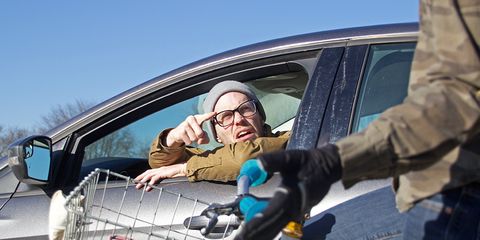
Mind your own Business
Well, you haven’t hit anyone or anything, and you’ve avoided being a bully or a jerk. So what’s left for a wannabe misbehaving driver? Worrying about what other road users are doing.
Drivers love to tell others, usually loudly, how to behave. Yelling at a cyclist to “get off the road,” or screaming “you can’t do that!” at another driver. Since most drivers think they’re better than the average driver (think on that for a minute), their opinion must be worth hearing.
You may have forgotten this, but when you get behind the wheel, your one and only responsibility is to operate your vehicle in a safe and legal manner. That’s it. It’s not your job to police other road users or tell them how to behave. If you’re that driver who can’t help but beak off at everyone around you, maybe you should ask yourself this: what makes your opinion so important? Why do you think you’re right? Does that person you’re yelling at care even what you think? Why don’t you just mind your own business?
Note: just last week I was out cycling with some friends. We happened to be in a bike lane, bunched up and chatting away. Someone drove by and the passenger rolled down their window and yelled, "Single file!" We caught up to them at the next light, and my conversation with the passenger went something like this:
Me: "What's your problem?"
P: "You're supposed to be riding single file!"
Me: "Are you a police officer?"
P: "Uh, no."
Me: "Then why don't you mind your own fucking business!"
Taking aside for a moment the fact that in BC, the "single file" law doesn't actually apply to pavement to the right of a solid white line, I fail to see why someone (a passenger to boot) thinks they have the moral obligation to try to correct a stranger's behaviour.
Well, you haven’t hit anyone or anything, and you’ve avoided being a bully or a jerk. So what’s left for a wannabe misbehaving driver? Worrying about what other road users are doing.
Drivers love to tell others, usually loudly, how to behave. Yelling at a cyclist to “get off the road,” or screaming “you can’t do that!” at another driver. Since most drivers think they’re better than the average driver (think on that for a minute), their opinion must be worth hearing.
You may have forgotten this, but when you get behind the wheel, your one and only responsibility is to operate your vehicle in a safe and legal manner. That’s it. It’s not your job to police other road users or tell them how to behave. If you’re that driver who can’t help but beak off at everyone around you, maybe you should ask yourself this: what makes your opinion so important? Why do you think you’re right? Does that person you’re yelling at care even what you think? Why don’t you just mind your own business?
Note: just last week I was out cycling with some friends. We happened to be in a bike lane, bunched up and chatting away. Someone drove by and the passenger rolled down their window and yelled, "Single file!" We caught up to them at the next light, and my conversation with the passenger went something like this:
Me: "What's your problem?"
P: "You're supposed to be riding single file!"
Me: "Are you a police officer?"
P: "Uh, no."
Me: "Then why don't you mind your own fucking business!"
Taking aside for a moment the fact that in BC, the "single file" law doesn't actually apply to pavement to the right of a solid white line, I fail to see why someone (a passenger to boot) thinks they have the moral obligation to try to correct a stranger's behaviour.
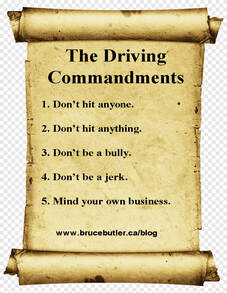
Conclusion
There is it. Good driving behaviour distilled into five simple commandments.
I purposely left out the implied commandment—don't break any laws—because clearly that’s not making a big difference. So the next time you get behind the wheel, remember these five Driving Commandments. You’ll be amazed at how much more pleasant your drive will be.
There is it. Good driving behaviour distilled into five simple commandments.
I purposely left out the implied commandment—don't break any laws—because clearly that’s not making a big difference. So the next time you get behind the wheel, remember these five Driving Commandments. You’ll be amazed at how much more pleasant your drive will be.

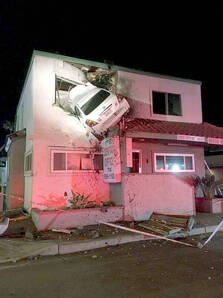



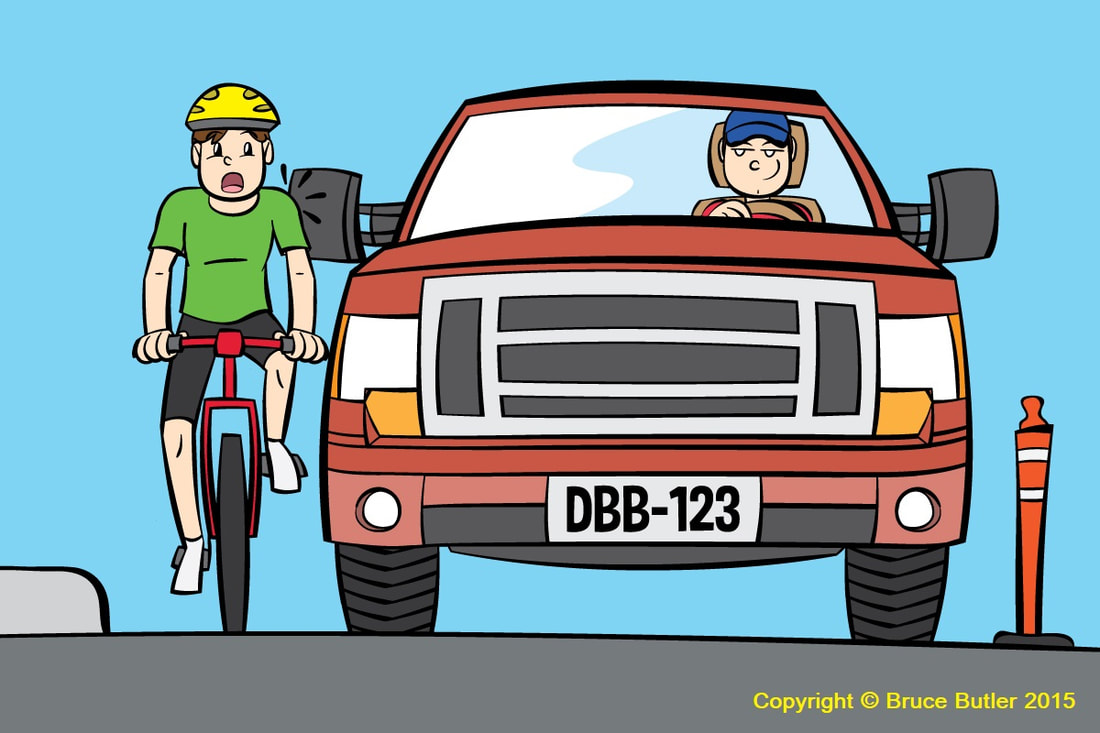
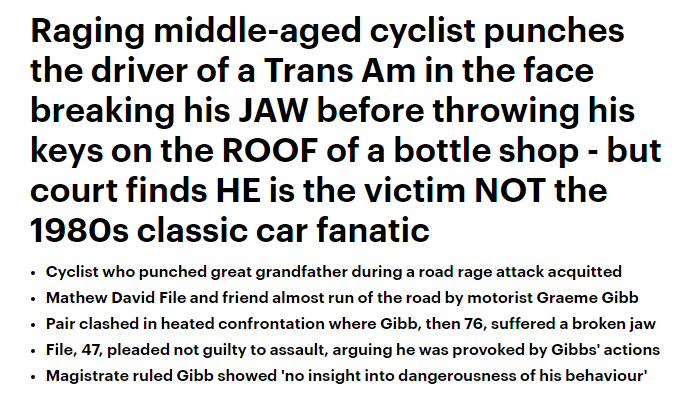
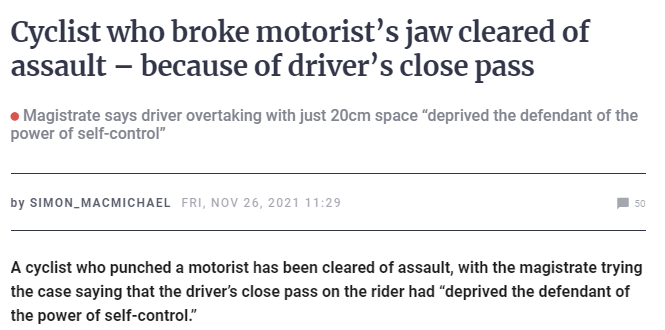
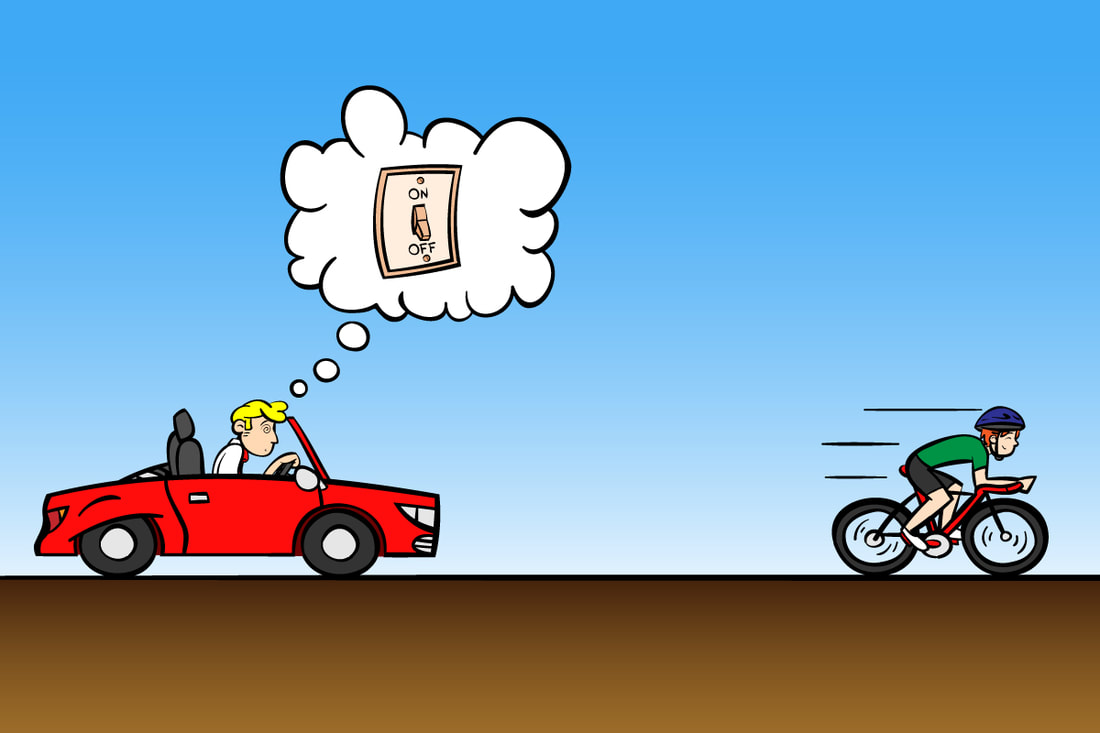
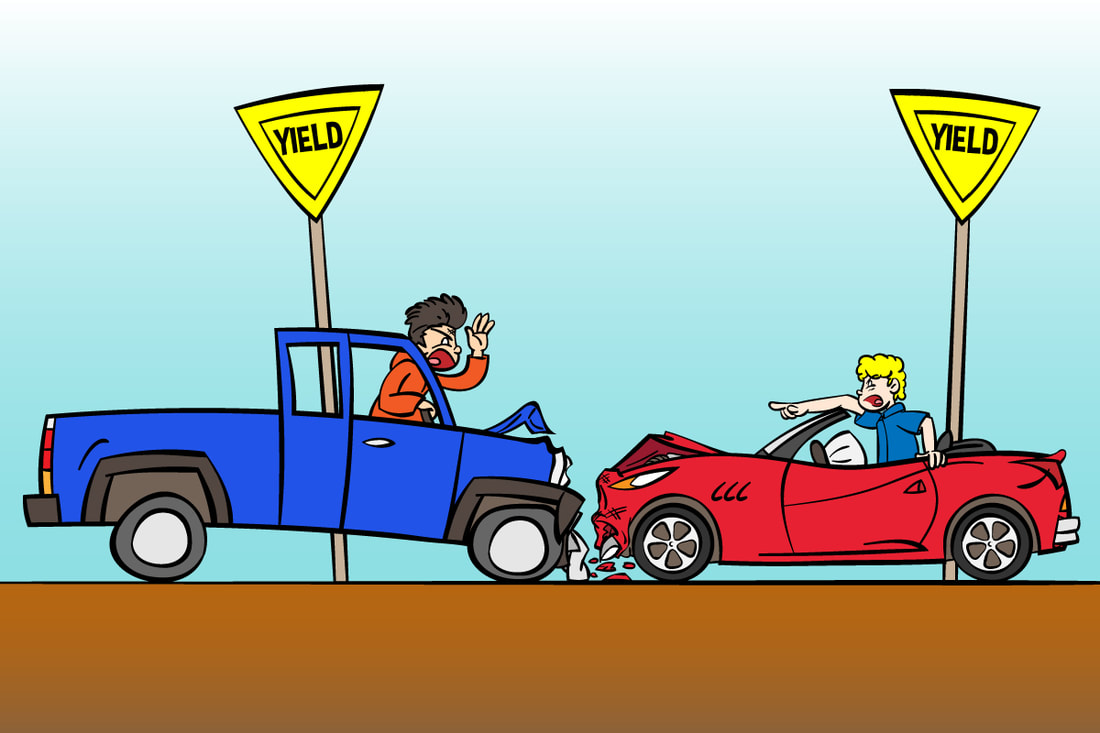

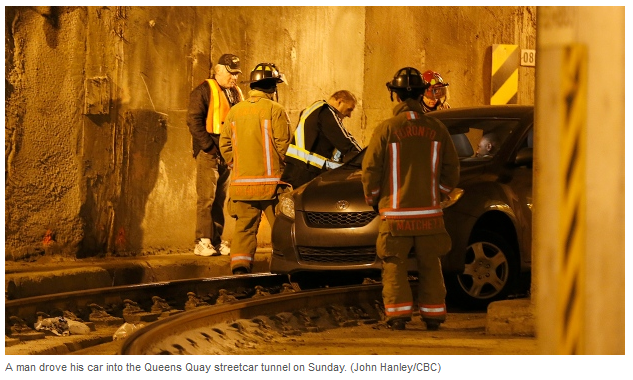
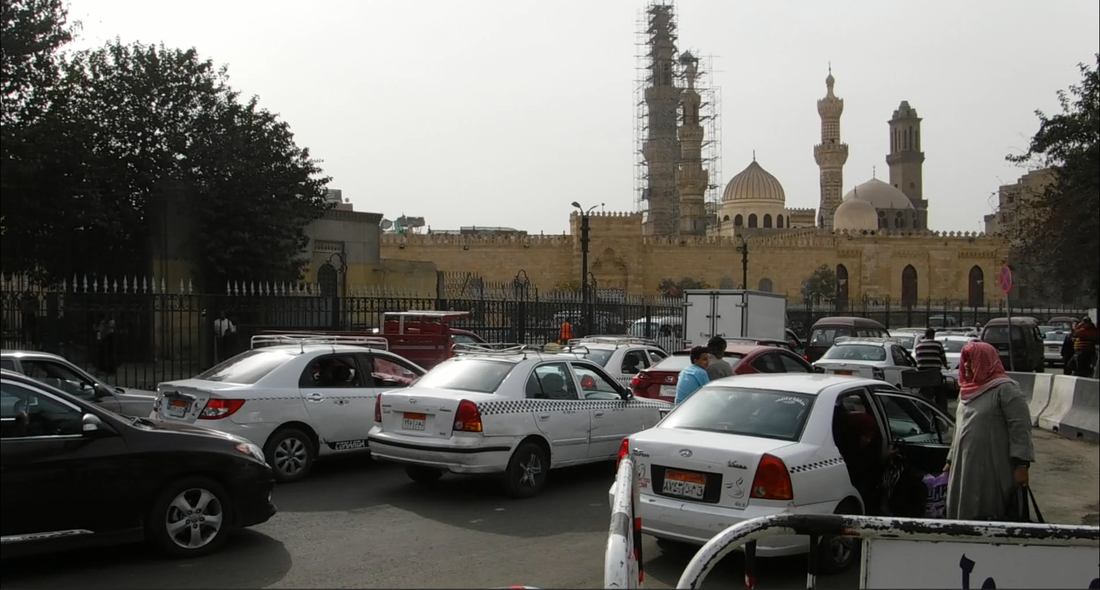
 RSS Feed
RSS Feed